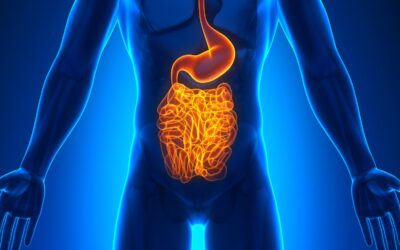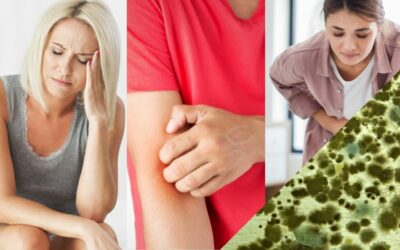How many good days per month do YOU have?
I feel like anytime you are among a group of women, the topics of PMS, Hormones, Hot Flashes, or Sex Drive come up.
MEN, don’t stop reading this yet — this affects you too!
Is it not true that when your Wife, Mom, Girlfriend or Daughter is hormonal, you steer clear? Maybe you can help her get balanced so she is calmer, more excited to see you, and not so uncomfortable in her own skin!
Men are simple. In a good way. You give them a supplement, put them on a diet, tell them what to do, and results are predicted and achieved. Women? Not so easy. But that is because we are “delicate” and “complicated” with a whole bunch of variables in play. As my husband says, “Sara, you women are ‘SPECIAL” — and he says it with a bit of sarcasm, ha!
“I only feel good two weeks of the Month…”
Most women say they don’t feel good every week; their hormones definitely affect their mood, energy, water retention, sleep and the way they feel in general. Your lifestyle is a major player in many aspects of your health, and that includes keeping your hormones balanced. Hormones are proteins or steroids that are secreted directly into your bloodstream, playing a role in many body functions such as:
- Your body’s Metabolism of Minerals
- Regulation of Fuids – Water Retention
- Reproduction
- Sexual function and Sex Drive
- Responses to Stress
The endocrine system, which includes glands such as the pituitary, hypothalamus, thyroid, parathyroid, pancreas, adrenal cortex and medulla, and ovaries, produce hormones in women.
If your hormones are in balance, you likely sleep well, have lots of energy and a strong sex drive, and your immune system and digestive system should be functioning smoothly.
However, it’s relatively easy to push your hormones off kilter, leading to an array of varied symptoms and hormone disorders including:
- Adrenal Fatigue
- Hypothyroidism and Hyperthyroidism
- Polycystic Ovary Syndrome (PCOS) — (A condition caused by Insulin Resistance)
You can also experience symptoms of imbalanced hormones without having a specific “disorder.” It’s important to understand, however, that hormone problems typically do not pop up overnight.
As I. Michael Borkin N.M.D. wrote:
People tend to think of women’s ‘hormone problems’ as starting in midlife with the onset of menopause. In fact, a dysfunctional pattern can begin during adolescent years or even before birth. The severity of hormonal problems may increase with age, but it is not aging per se that is the root of declining health.
It is most often the cumulative physiological effects of stress that cause disruption of the natural rhythms and balancing mechanisms of women’s hormones, thereby eventually compromising overall health as well as sexual and reproductive health.”
Is Your Lifestyle Interfering With Your Hormonal Balance?
Female hormonal imbalances are often related to stress response. The more stress you’re under, the more it unbalances your Cortisol levels. Not only is Cortisol your primary stress hormone, it is a primary hormone in general, helping your body convert food into Energy, normalize Blood Sugar, respond to Stress and maintain your Immune System’s Inflammatory Response.
When your cortisol levels become unbalanced due to chronic stress, this in turn deregulates your female hormones as well.
So what types of “stress responses” will interfere with your hormonal balance?
- Emotional Stress — Causes an increase in Cortisol which leads to an imbalance of the Female hormones.
- Dietary Stress — Sugars and processed foods cause Insulin Resistance which starts a cascade of hormonal imbalances. Unsprouted grains, sugar or fructose decrease seven of the 12 most important hormones (Dr. Thierry Hertoghe).
- Alcohol decreases your human growth hormone (HGH), one of your most potent built-in anti-aging hormones. Having just one alcoholic drink per day can decrease your HGH by 75 percent.
- Pain and/or inflammatory Stress
Addressing Hormone Problems Begins With Changing Your Lifestyle
Treating hormone problems requires a whole-body approach, one that addresses the excess stress and unhealthy lifestyle habits that created the hormonal imbalance in the first place.
So, how do you address the above stressors in today’s crazy world?
Tips for Achieving Hormonal Balance:
- Accelerated Fast®. It has shown to balance women’s Estrogen, Testosterone, Progesterone and Cortisol Levels. Women with PCOS, which has become increasingly common and is caused by Insulin Resistance, have rid themselves of symptoms of their condition by achieving Insulin Sensitivity and balancing their hormone levels. Whether a woman is high in Testosterone or Estrogen, the KETO balances the Hormones and regulates Blood Sugar and Cravings.
- Menopause Health. Helps balance hormones in Women over the age of 30, not just women in Menopause.
- Magnesium supplement. Magnesium improves your sex hormone levels, including your Testosterone and HGH.
- Vitamin D3 supplement. This is a must for gene and hormonal regulation and optimal health.
Sara Banta
Sara Banta is a Stanford University Graduate with a Degree in Economics and Psychology, and a certified Natural Supplement Expert & Graduate of the Institute for Integrative Nutrition. Sara is the Founder of Accelerated Health Products and host of the health & wellness podcast, Accelerated Health Radio.
- Sara Bantahttps://sarabantahealth.com/author/sarabanta/
- Sara Bantahttps://sarabantahealth.com/author/sarabanta/
- Sara Bantahttps://sarabantahealth.com/author/sarabanta/
- Sara Bantahttps://sarabantahealth.com/author/sarabanta/









